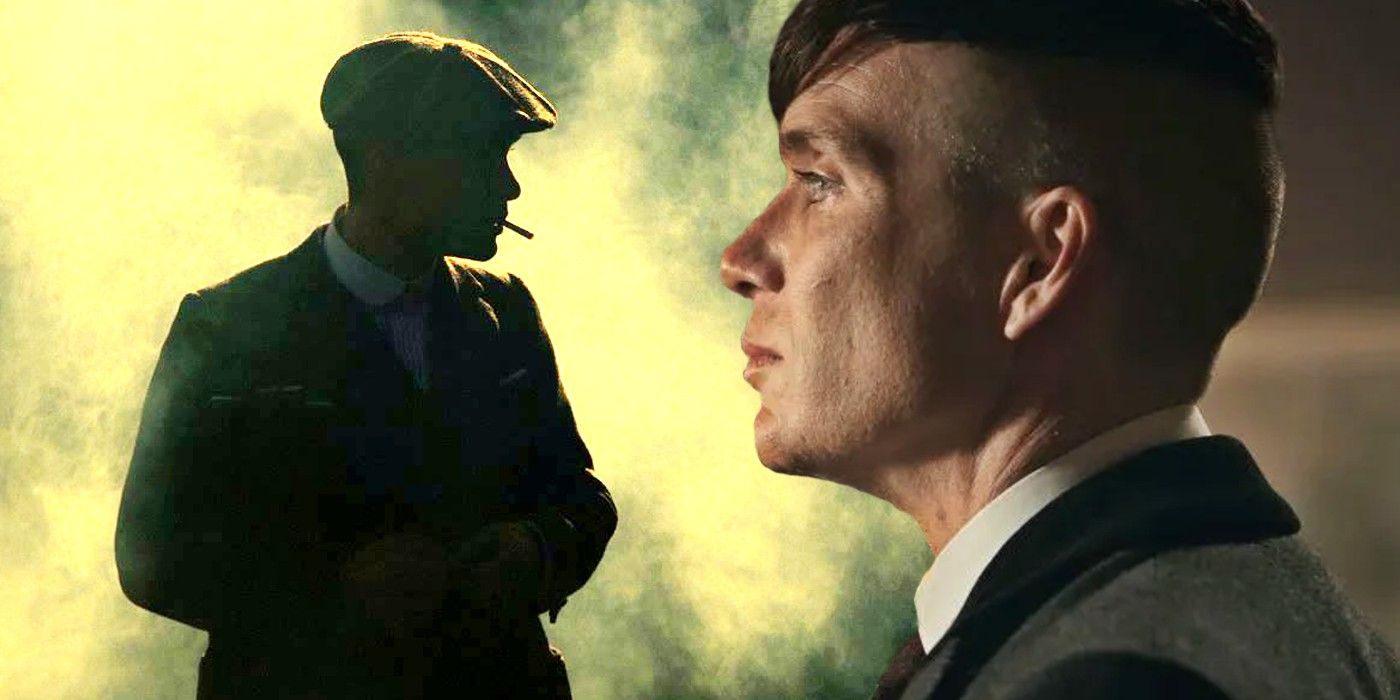Peaky Blinders' 'In The Bleak Mid-Winter' Christmas Quote Explained

At key moments in Peaky Blinders, the Shelby brothers are heard uttering the words, “in the bleak mid-winter,” a quote with a long history tied to Christmas. Now entering its sixth and final season, it was recently announced that the Netflix (BBC) show will end with a Peaky Blinders movie, offering fans a grand conclusion to the popular series. With the end of the historical crime drama drawing near, it seems only appropriate to investigate the meaning behind the quote the Shelby brothers so often associate with death.
Set in the crime-riddled city of Birmingham in 1919, Peaky Blinders follows the Shelby brothers who have recently returned from World War 1. Thomas (Tommy) Shelby emerges quickly as the leader of the family-run gang, the Peaky Blinders, supported by his brothers—Arthur, John, and Finn (who act as the muscle of the operation); his sister, Ada; Aunt, Polly; and, later, his cousin, Michael. Over the course of five seasons, Peaky Blinders’ Tommy (Cillian Murphy) has brought the family from low-level criminals to aristocrats, but the Shelby family’s rise to greatness has come with many sacrifices, and when death comes to the Peaky Blinders, it is met with the words, “in the bleak mid-winter.”
The quote comes from a poem that was first published in 1872 under the title, A Christmas Carol. The poem was then made a hymn by composer Gustav Holst in 1906 and popularized by composer Harold Darke when he transformed the poem into an anthem in 1909. Darke’s anthem became one of the most popular Christmas carols in the years following and was often sung throughout the trenches during World War 1, likely offering the soldiers (in this case the men of Peaky Blinders) a sense of comfort amidst the tragedy of war.

In the Bleak Mid-Winter has been quoted during many climactic scenes featuring key Peaky Blinders characters in episodes including season 4, episode 1 titled “The Noose,” when Arthur and John are about to be hanged and Peaky Blinders season 4, episode 2, “Heathens,” which shows John’s funeral following his death by the Changretta gang. The poem was first heard, however, not at a death, but at the faked death of the brothers’ co-patriot from the war and fellow Peaky Blinders member, Danny Whizz-bang. This is particularly interesting as both Tommy and Danny knew that the death was staged. In this instance, it becomes clear that the poem In the Bleak Mid-Winter is not only spoken in the event of death in Peaky Blinders, but in the overarching concept of loss, as Danny Whizz-bang will not die, but will be sent away from his home and his co-patriots.
Interestingly, the poem (as a hymn) is featured during Tommy and Grace’s wedding (Grace is played by the Silent Night movie’s Annabelle Wallis) in Peaky Blinders season 3, episode 1. Though this seems in stark contrast to the other uses of the poem throughout the series, used in this context, the poem may symbolize Tommy’s character’s death and rebirth through his marriage to Grace. Alternatively, the hymn may have been a foreshadowing of Grace’s death in the upcoming episode.
Following her death, Tommy is haunted with visions of Grace beckoning him to join her in the afterlife, culminating in Peaky Blinders season 5, episode 2 when Tommy runs to meet Grace’s ghost, presses his gun to his head, and screams in despair. While the aim is undoubtedly a cliffhanger, it seems unlikely that Peaky Blinders' Tommy Shelby will meet his end without the show’s trademark death toll “in the bleak mid-winter” offering Tommy (and viewers) a sense of peace and closure.
from ScreenRant - Feed https://ift.tt/3yNw5Rz
via Whole story

Post a Comment